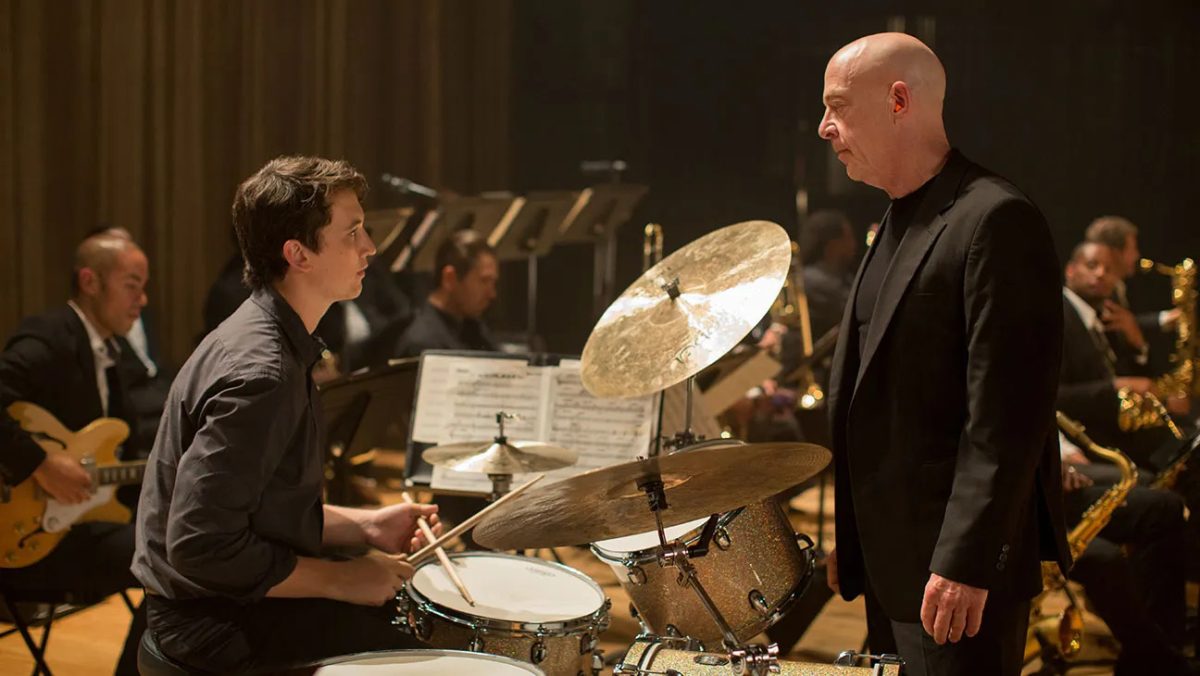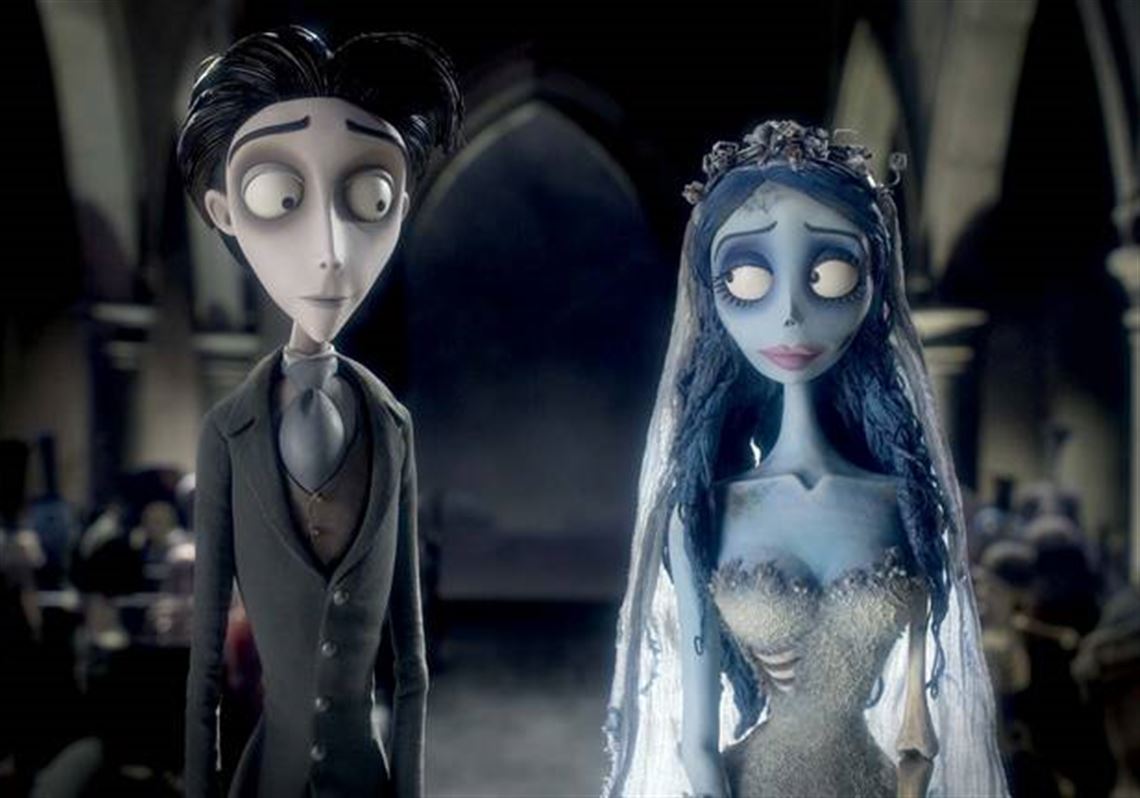 We all want to be perfect…especially Andrew Neiman.
We all want to be perfect…especially Andrew Neiman.
Released in 2014, Whiplash is a cinematic masterpiece, written and directed by Damien Chazelle. It stars Miles Teller, as Andrew Neiman, a college student who strives to be the greatest drummer the world has ever known. Yearning for perfection, the young man experiences the real world of music. This film also features an Oscar-winning performance by J.K. Simmons, as Andrew’s ruthless mentor, Fletcher, who pushes him past his limits.
The movie starts with Andrew at a jazz competition, where he misplaces one of the drummer’s music sheets, so he offers to perform the song “Whiplash” from memory, as the other drummer cannot play. Andrew’s great effort at the audition sparks the interest of Fletcher, who is the mentor at Shaffer Conservatory, the most prestigious music school in New York City.
Andrew’s introduction to his new jazz band at Shaffer quickly turns dark, as the well-reputed mentor is not who he thought he was. Throughout the film, Fletcher constantly belittles and degrades his students, as a way of motivating them. He even goes as far as throwing chairs across the room to pressure his students into meeting their full potential.
Minor mistakes by Andrew lead to major consequences, such as his expulsion from classes and missing out on the opportunity to partake in future concerts. This challenges the viewer’s thoughts on the line between motivation and abuse.
The relationship between Andrew and Fletcher is complex. Andrew endures the constant degradation, because it motivates him to do better. Most students aren’t capable of that kind of high-level mentorship, but Andrew believes he is not like them. He takes the fear, combined with the constant pressure, and turns it into music that can be appreciated.
Whether viewed as a psychological thriller, or as a piece of extraordinary music, Whiplash presents Andrew as an artist who has a true depth to his character, and this makes him emotionally appealing to the audience. Andrew’s strong will to become “one of the greats” takes a huge toll on his mind, as shown through his self-destruction. He struggles with his drumming skills and takes Fletcher’s harsh words to heart. This leads to him pushing his body and mind to extremes, harming his hands and mental health during his practice sessions.
Arguably, Fletcher’s brutal methods come off as too wild and intimidating. This is reasonable, especially when considering all the emotional damage he has done to Andrew. However, some viewers may justify his cruelty, as it brings out the best in his talented student.
It feels as though the whole point of the film is to bring attention to harsh motivation and how it is present in many different professions, not just in the performing arts. The strict commitment it takes to achieve excellence, from both the mentor and the student, is incredible to behold.
The best moments of the film showcase Andrew’s performances, expanding on how music is a great tool for storytelling. The use of jazz adds necessary intensity to Andrews’s already existing issues, making the audience feel anxious about his fate.
Andrew’s playing styles also change depending on his mood. He may start with a slow and easy pace, and then swiftly turn peaceful beats into aggressive ones.
The movie’s focus on perfectionism explores the intensity that is felt inside the mind of an artist. It creates room for the viewers to add their theories and opinions on the pursuit of greatness.
This movie is one of the most intense stories about perfectionism you will ever see. And if you enjoy this film, consider checking out I, Tonya, Nightcrawler, and Black Swan, which are also about obsessed individuals who reach their breaking point.










